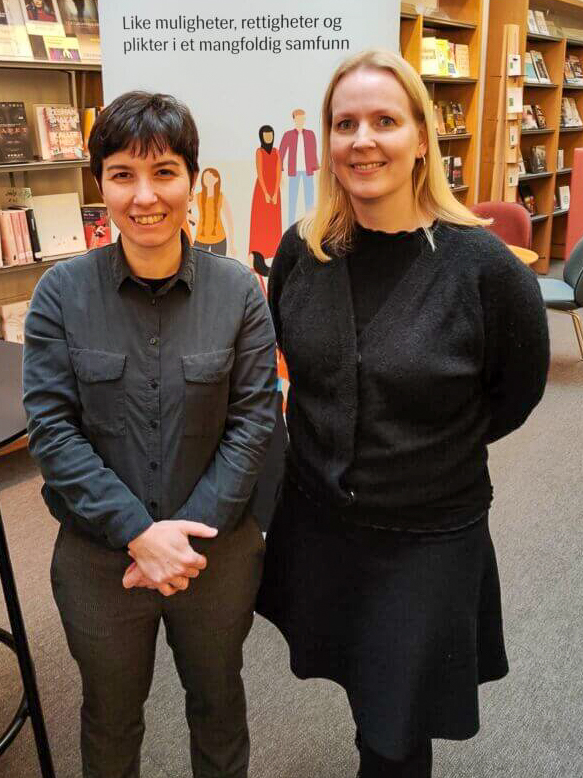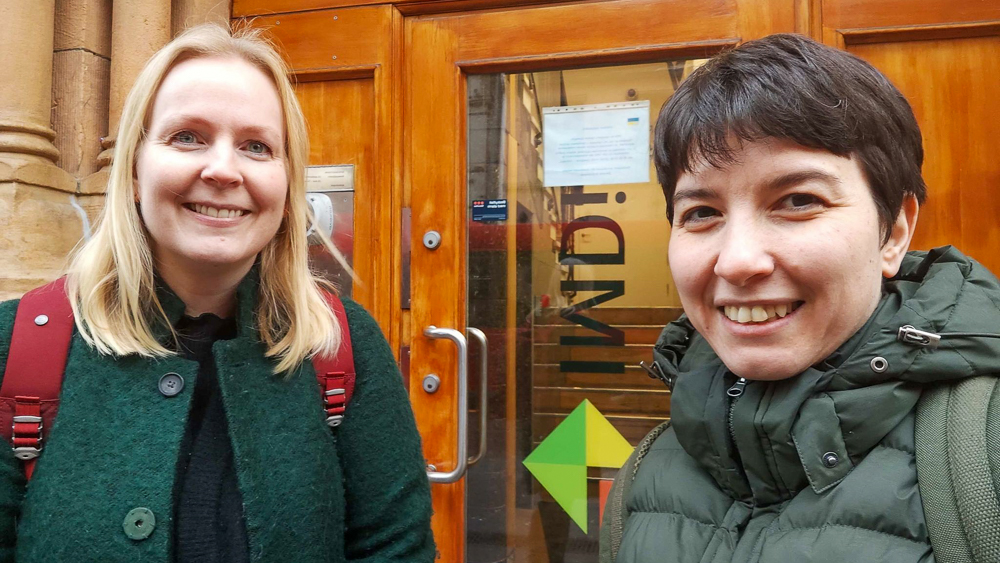– If I were to compare it with Turkey, I was not afraid that someone would come and beat me up or say something racist to me. But at the same time, I felt like I was not noticed; people did not want to talk to me. And no, I did not feel welcome!
This is what an informant says in the research report 'På leting etter trygghet: Integrering av LHBTIQ+-flyktninger i Norge' (English: 'In search of safety: integration of LGBTIQ+ refugees in Norway'), which is being presented this week.
Loneliness, negative social control and discomfort are keywords for many refugees who identify as LGBTIQ+.
In-depth research

LGBTIQ+ is the umbrella term for lesbian, gay, bisexual, transgender, intersex, queer, and other individuals who defy gender and sexuality norms.
Since sexual orientation is no longer recorded as a basis for asylum in recent years, it is uncertain how many LGBTIQ+ refugees there are in Norway. From 2002 to 2018, approximately ten people per year were granted asylum status due to their sexual orientation.
Researchers from the Eastern Norway Research Institute at the Inland Norway University of Applied Sciences have conducted a study on the experiences of LGBTIQ+ refugees in Norway, commissioned by the Directorate of Integration and Diversity (IMDi).
In-depth interviews have been conducted with fifteen refugees from Afghanistan, the United Arab Emirates, Egypt, Iran, Congo, Palestine, Syria and Chechnya who identify as LGBTIQ+.
Additionally, group interviews were conducted with actors in five municipalities who work with refugee integration, such as adult education, health services, the voluntary sector and interest groups.
– Like other refugees, LGBTIQ+ refugees must deal with challenges related to accessing education or employment, as well as uncertainties related to the asylum process. Additionally, this group faces challenges related to intersecting identities and minority stress, the researchers summarise.
- See the report here: 'På leting etter trygghet: Integrering av LHBTIQ+-flyktninger i Norge'
Many things are burdensome
The living conditions in asylum centres are experienced as particularly stressful and uncomfortable.
Some informants report that they are worried about being 'outed' as queer. They fear that it could lead to persecution of their families back home.
Negative social control is also felt in educational settings, as one informant explains: -…When we are at school, we feel like we are in little Syria, and we have to adapt to the entire atmosphere. But we feel like we are in Norway when we are outside of school; when we leave school, we are in Norway.
Insecurity around the use of interpreters affects how queer individuals experience settlement and integration, and the informants express doubts about both the competence and quality of the interpretation services.
For example, a trans man recounts an incident where the interpreter referred to him as 'she', despite his protests: – I had a very hard time with the interpreter too. The interpreter says 'she'. I say no, no, no. The interpreter says okay, okay, but then says 'she' again. I say 'not she!' I tell my contact person that I don not want this person and to speak Arabic, I don not want to. I speak Norwegian.

The importance of networks
Several informants share that they have fled from their families, and that they have little or no contact with people from their home countries. Therefore, belonging to queer networks becomes particularly important.
Organisations such as 'Skeiv Verden' (Queer World) play a crucial role in providing a safe and respected environment.
During group interviews, actors involved in refugee integration also emphasise the importance of support organisations. Many have participated in competence-building initiatives on gender and sexual diversity offered by Skeiv Verden and 'Rosa Kompetanse' (Pink Competence).
They highlight the need for more training resources for persons working with introduction programmes, in schools, as an interpreter, and in healthcare. Competence-building among integration actors and healthcare professionals is among the recommended initiatives in the report.
The researchers propose several other measures to improve the integration of LGBTIQ+ refugees. Some examples include:
- Better information for newly arrived refugees about services and rights for queer individuals.
-
Improving the quality of interpretation services using glossaries developed by IMDi and Skeiv Verden.
-
Providing choices in the usage of interpreters, such as using telephone interpreters or screen interpreters.
-
Clear zero-tolerance policies against homophobia and discrimination, and early identification of bullying and harassment.
-
Inclusive crisis centres and support services.
Contact information:
- lisa.wold@inn.no
- Phone
- +47 62 43 00 97
- deniz.akin@inn.no
- Phone
- +47 62 43 05 88



